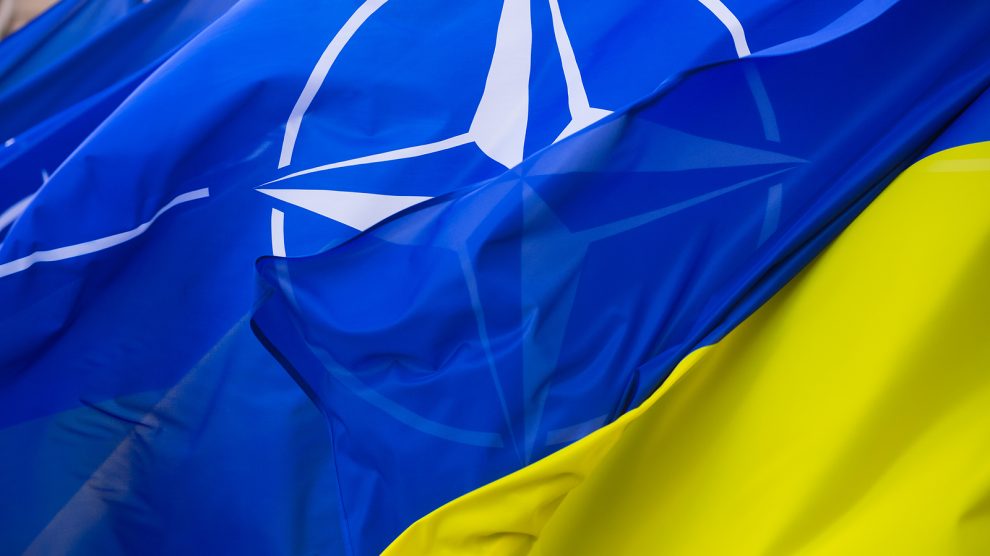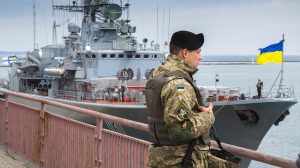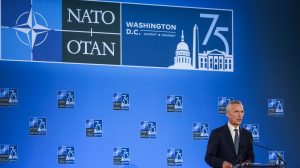Catch up quickly with the stories from Central and Eastern Europe that matter, this week led by the NATO chief’s proposal to take direct role in providing support to Kyiv.
Russia’s war on Ukraine
NATO boss Jens Stoltenberg this week proposed a five-year package of military aid to Ukraine worth 100 billion euros that would give the Western alliance a more direct role in providing support to Kyiv.
Under the plan, NATO—which on Thursday celebrated its 75th anniversary—would take over some coordination work from a US-led ad-hoc coalition known as the Ramstein group—a step designed in part to guard against any cut in US support if Donald Trump returns to the White House, diplomats said.
The proposal is expected to be finalised in time for a NATO summit in Washington in July.
Until now, NATO as an organisation has restricted itself to non-lethal aid for Ukraine out of fears that a more direct role could trigger an escalation of tensions with Russia. Most of its members provide weapons to Ukraine on a bilateral basis.
Ukrainian President Volodymyr Zelensky this week signed a bill to lower the mobilisation age for combat duty from 27 to 25, a move that should help Ukraine generate more fighting power in its war with Russia.
The move expands the number of civilians the army can mobilise into its ranks to fight under martial law, which has been in place since Russia launched its full-scale invasion in February 2022.
The bill had been on Zelensky’s table since it was approved by lawmakers in May 2023, and it was not immediately clear what prompted him to sign it. Parliament has been discussing a separate bill to broadly tighten draft rules for months.
Ukraine on Tuesday claimed responsibility for a drone attack in Russia’s Tatarstan region—more than 1,300km from the Ukraine-Russia border.
The strikes, in which 12 people were injured, are the deepest into Russian territory since the start of the war.
Local authorities said that the strikes hit the town of Yelabuga, where drones are thought to be produced, and an oil refinery in nearby Nizhnekamsk.
Tatarstan regional leader Rustam Minnikhanov said the drones caused “no serious” damage to infrastructure in either location and that production operations were unaffected.
However, Ukraine’s military intelligence said the strike in Yelabuga “caused significant destruction of production facilities”.
Other news from the region
Ivan Korcok, a pro-Western diplomat and former foreign minister, is hoping to ride a wave of support energised by his first-round victory to edge out government party candidate Peter Pellegrini in Slovakia’s presidential election run-off on Saturday. Korcok, 59, surprisingly won the first round two weeks ago over Pellegrini, 48, on pledges to be a counterbalance to the government of Robert Fico, which has taken a pro-Russian stance on Ukraine and launched reforms criticised for weakening the rule of law. Final opinion polls ahead of a moratorium on polling showed a dead heat.
Poland has been the biggest beneficiary of EU membership among the eastern member states that have joined the bloc since 2004, a new report by Polish bank Pekao showed this week. Poland’s real GDP doubled between 2004 and 2022, more than any of the other Central and Eastern European countries that have joined the EU. Among them, Romania recorded the second-strongest growth, of 80 per cent. Slovakia, Lithuania and Czechia saw growth of 78 per cent, 74 per cent, and 51 per cent, respectively. Over the same period, the GDP of the EU as a whole rose by 27 per cent.
Airports in Romania and Bulgaria on Sunday removed passport check points for those departing to or arriving from most European Union member states as the two countries partially joined the Schengen open-travel zone. Bucharest and Sofia reached an agreement late last year to join Europe’s free-travel area by air and sea after Austria opposed full membership, including land crossings, saying Romania and Bulgaria needed to do more to prevent illegal immigration. The two countries have joined a regional police initiative with Austria, Greece and Slovakia to counter the flow of migrants.
Georgia’s government is reviving a law to brand NGOs and opposition media outlets as agents of foreign influence. The move comes just over a year after the proposals were dropped in the face of massive public outcry and huge street protests. The ruling Georgian Dream party on Wednesday confirmed that the so-called foreign agent law would be reintroduced. According to its parliamentary leader, Mamuka Mdinaradze, the proposals will be virtually unchanged, and organisations receiving funding from overseas would be obliged to declare they are “carrying out the interests of a foreign power.”
US Secretary of State Antony Blinken this week called on Azerbaijan’s leader to ease tensions that have flared again with Armenia, ahead of a US-EU bid to support Yerevan economically. In a phone call with President Ilham Aliyev, Blinken backed ongoing peace talks between the Caucasus adversaries which he said could bring “economic benefits to the entire region”. Armenian PM Nikol Pashinyan will meet jointly in Brussels on Friday with Blinken and EU leaders, with the West looking to solidify ties and economic support with Armenia as it seeks to shift from reliance on Russia.
Kazakhstan said on Tuesday it had evacuated some 16,000 people after the worst flooding to hit the Central Asian country in three decades. Waters are set to rise further as snow melts across the vast Kazakh steppe, the country’s meteorological agency has warned. “Rescue operations are continuing and around 16,000 people, including 6,000 children, have already been evacuated,” Kazakhstan’s emergency situations ministry said in a post on Telegram. It described the situation as “complicated” in five regions in the north and east, on the border with Russia, and said road links had been cut off to 50 settlements.
Eight people died in southern Albania on Tuesday when a car carrying suspected migrants swerved off a mountain road into a ravine, police said. The car fell on the rocky bank of the fast-flowing Vjosa River below a road that police say is frequently used by migrants from the Middle East and Africa to cross the Balkan country, police official Ardian Cipa told Reuters. “The driver is from north Albania, we are trying to identify him,” Cipa said. “We believe the others are illegal migrants.” A police patrol spotted a car driving at high speed along the road in the early hours of Tuesday, but could not stop it.
The Czech capital’s underground is set to become the backdrop for a unique video game with the upcoming release of Back in Service, billed as a Prague metro driver experience and created by just a single designer, Dominik Vojta. The project, which began as a personal fascination with Prague’s subway system, has gained significant traction, far surpassing its initial crowdfunding goal in just one week. To date, it has raised nearly 400,000 crowns (15,800 euros) on the Czech platform Startovač. An early access version of the game is currently available to backers.
Unlike many news and information platforms, Emerging Europe is free to read, and always will be. There is no paywall here. We are independent, not affiliated with nor representing any political party or business organisation. We want the very best for emerging Europe, nothing more, nothing less. Your support will help us continue to spread the word about this amazing region.
You can contribute here. Thank you.







Add Comment